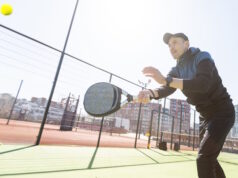
Parents are often elated when their babies take the first steps. Truth be told, this is the time to double their babyproofing efforts as kids are ready to explore every nook and cranny of the home.
Some people rarely understand the importance of childproofing their homes until they start having babies or pets. Experts recommend taking this step to reduce hazards and to create a safe place for your children. This will also give you peace of mind even if you take your gaze off them for a brief moment. Although babyproofing your home isn’t expensive or difficult, it requires more than just relying on your intuition.
- Secure your doors and windows
According to the new child safety blinds regulations, corded blinds can pose serious safety issues. In case you’ve been using this type of window blinds in your home, it’s high time to replace them with the cordless ones.
This is the best way to avoid the risk of cord strangulation hazards. Another thing is to install metal window guards. Make sure that you get doorstops and door handles to protect your baby’s tiny fingers and hands.
- Install gates around stairs
Install sturdy safety gates at the top and bottom of each stair once your baby is around 5-6 months old. Try to get a model that will stay in place and lacks bars that can make you trip over. Confirm that your baby won’t be able to climb over the safety gates.
Hard-ware mounted safety gates works best. Restrict your baby access from high-hazard rooms such as the kitchen and office.
- Lock the bathroom doors
Accidents are common in the bathroom. There have been incidents of children drowning in even small amounts of water. Your best bet is to cover the toilets and lock the bathroom doors. Child-proof locks will offer extra protection around your home.
Taking this step can go a long way to protect your plumbing system.
- Keep cleaning products away
Poisoning can occur within a split second if care isn’t taken. Make sure that you always lock the cabinets. Storing cleaning and laundry products on higher shelves may not always be the right option, especially if your baby has superb climbing skills.
The same rules go for medications and antifreeze. Don’t make the mistake of keeping them in purses as this will only make it easily accessible to them.
- Cover electrical outlets
The rate of death by electrocution doesn’t seem to be declining every year. Given this, extra care must be taken near electrical outlets and appliances. Kids tend to poke their fingers or items inside electrical sockets when they start crawling.
Buy tight-fitting or sliding covers for the outlets so that they will find them difficult to remove. It’s safer to cover exposed outlets on extension cords with electrical tape. More so, place electrical appliances far away from the counter edges and unplug all electronic items you’re no longer using.
Encourage everyone in your home to know the best way to respond during an emergency. Keeping an emergency number handy and having a first-aid box can provide relief and timely solutions.












